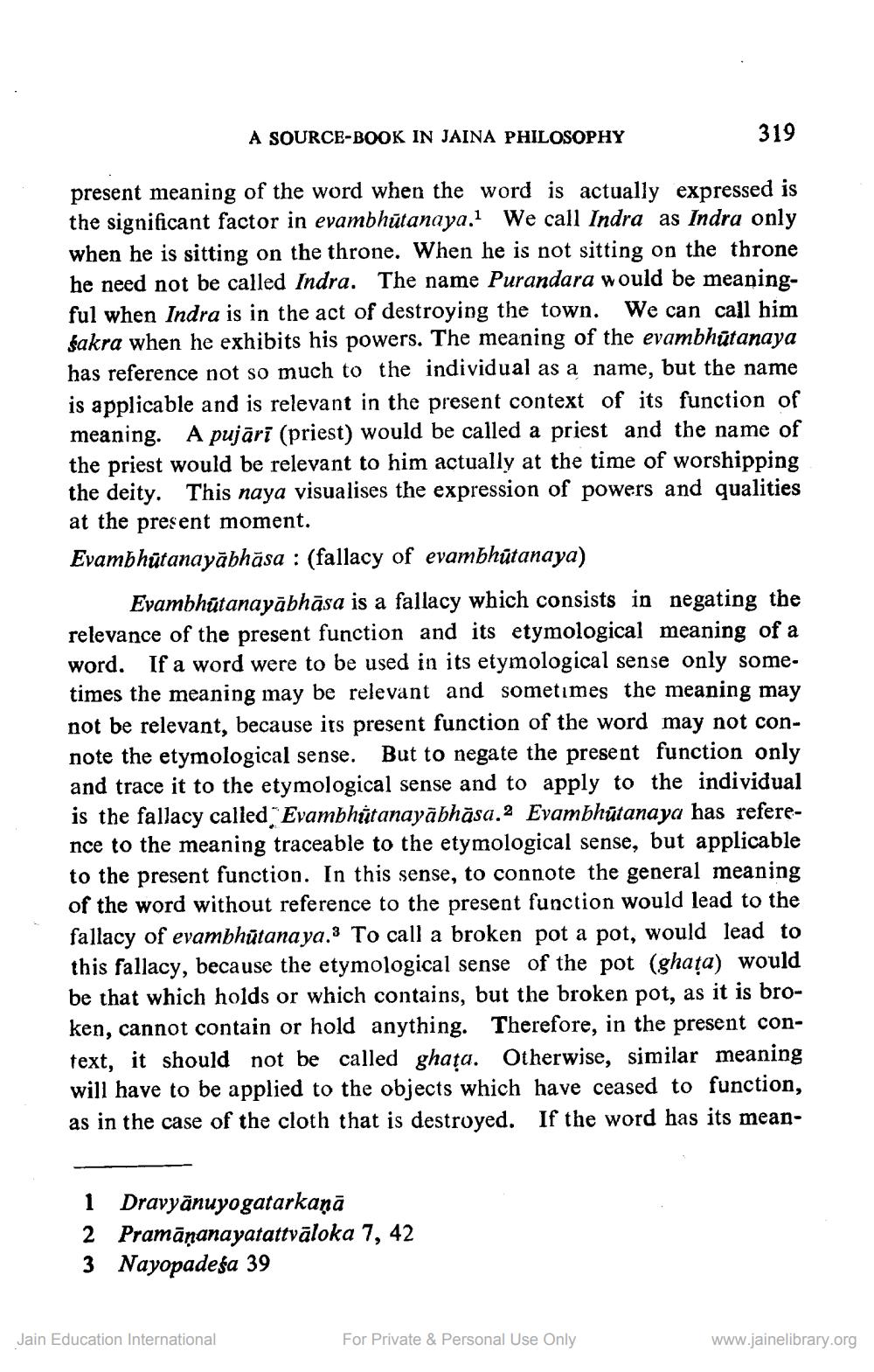________________
A SOURCE-BOOK IN JAINA PHILOSOPHY
319
present meaning of the word when the word is actually expressed is the significant factor in evambhūtanaya. We call Indra as Indra only when he is sitting on the throne. When he is not sitting on the throne he need not be called Indra. The name Purandara would be meaningful when Indra is in the act of destroying the town. We can call him sakra when he exhibits his powers. The meaning of the evambhutanaya has reference not so much to the individual as a name, but the name is applicable and is relevant in the present context of its function of meaning. A pujārī (priest) would be called a priest and the name of the priest would be relevant to him actually at the time of worshipping the deity. This naya visualises the expression of powers and qualities at the present moment. Evambhūtanayābhāsa : (fallacy of evambhūtanaya)
Evambhūtanayābhāsa is a fallacy which consists in negating the relevance of the present function and its etymological meaning of a word. If a word were to be used in its etymological sense only sometimes the meaning may be relevant and sometimes the meaning may not be relevant, because its present function of the word may not connote the etymological sense. But to negate the present function only and trace it to the etymological sense and to apply to the individual is the fallacy called Evambhùtanayābhāsa.2 Evambhūtanaya has reference to the meaning traceable to the etymological sense, but applicable to the present function. In this sense, to connote the general meaning of the word without reference to the present function would lead to the fallacy of evambhūtana ya.3 To call a broken pot a pot, would lead to this fallacy, because the etymological sense of the pot (ghața) would be that which holds or which contains, but the broken pot, as it is broken, cannot contain or hold anything. Therefore, in the present context, it should not be called ghața. Otherwise, similar meaning will have to be applied to the objects which have ceased to function, as in the case of the cloth that is destroyed. If the word has its mean
1 Dravyānuyogatarkanā 2 Pramānanayatattvāloka 7, 42 3 Nayopadeša 39
Jain Education International
For Private & Personal Use Only
www.jainelibrary.org




